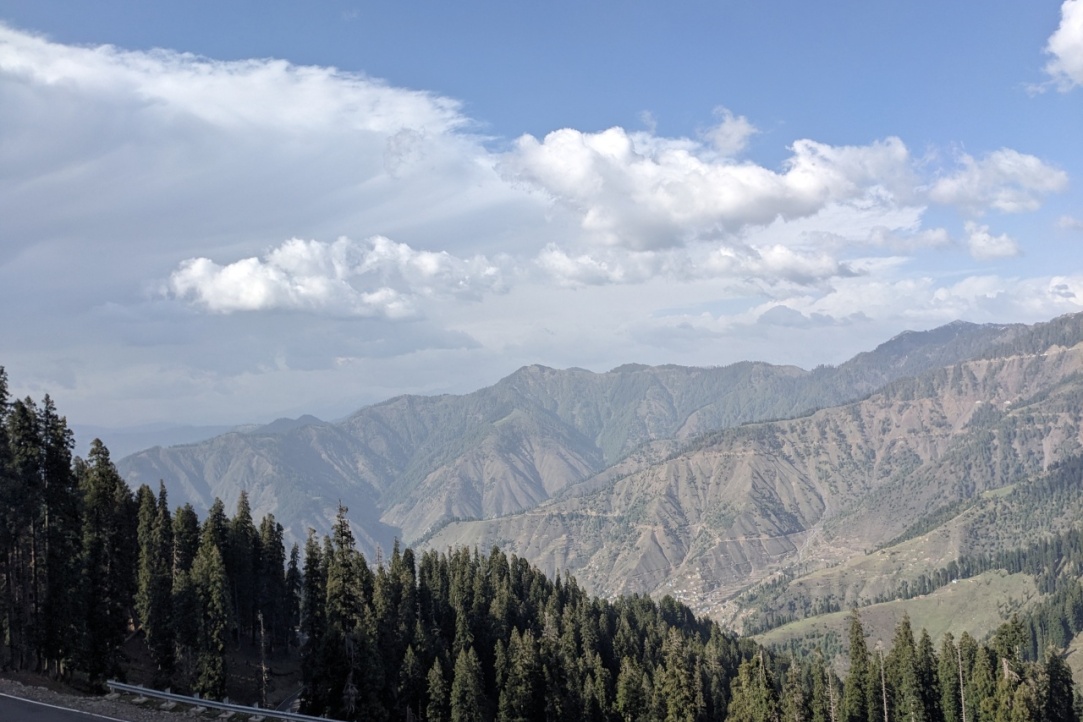On September 23, the Second Expedition to the Himalayas to Start
Pretty soon, HSE University-St Petersburg will go on the second expedition to the Himalayas organised together with the University of Delhi. This time, researchers will visit the Indian state of Himachal Pradesh which is known for more severe weather conditions at this time of the year. Together with colleagues from the Indian university, they will continue to study how the local communities adapt to ecological and climatic changes, focusing on the sociological aspect of the research.

The expedition to the Himalayas is a result of academic cooperation of HSE University-St Petersburg with Indian universities which started in November 2023. Back then, the School of Social Sciences and the PGDAV College of the University of Delhi negotiated a five-year joint research in the sphere of climate change.
In September, the delegation of HSE University-St Petersburg will visit the Himalayas for the second time. The expedition will feature students and researchers of the School of Social Sciences. During the second trip, they will focus on sociological research and study how various social groups react to climate, ecological and economic changes. For the expedition, the organisers selected the students-sociologists as the participation requires skills to use overt observation and conduct interviews with a wide range of informants: from nomads to representatives of public authorities, science and business.
Alexander Sorokin, Dean of the School of Social Sciences

I am happy that the School of Social Sciences at HSE University-St Petersburg keeps enhancing academic ties with colleagues from the University of Delhi. Together, we intend to conduct comparative research on local communities of different territories in the Indian Himalayas, so we will continue to stick to the methodology which we developed during the first expedition. We want to find out how climate, economic and ecological changes are perceived and interpreted by different categories of the population, and how they integrate these changes into daily life and practices.
Weather changes, changes in biodiversity, the appearance of modern technologies, the development of transport systems and the spread of tourism are only a few examples of what influences the life of local communities. Some local residents actively use these changes to alter the established lifestyle; others try to keep the traditional practice. These questions are relevant from both scientific and applied perspectives as ecoclimatic and economic changes happen all around the world. In Russia, more than half of the area is exposed to climate risks, especially in northern and mountain regions. The research on this topic will help to develop measures and practices on adaptation and sustainability which can be replicated and used in the various regions.
Polina Mironova, 2nd-year student of the Master's programme 'Modern Social Analysis'

This summer, I went on my first expedition to Kostroma, and I extremely liked the fieldwork. I think this experience played an important role in selecting me for participation. It seems to me that during such trips, students fully understand the essence of sociological work. That's why I decided to take part in the expedition to the Himalayas—I want to try my hand at research with a long field and in more extreme conditions. From an academic point of view, I was interested in studying the educational culture of the Sherpa people, their peculiarities in terms of acquiring knowledge about the world and the strategies for adaptation to climate change. It will be extremely interesting for me to look at adjacent areas because, in Russia, I study the professional strategies of teachers in turbulent conditions. Of course, I hope that during the expedition, among other things, I will be able to improve my skills in fieldwork, especially in a foreign language—for me, it is a certain academic challenge.
The research group will visit the state of Himachal Pradesh where they have already been. This time, the route will mainly go through the Lahaul and Spiti district. The region is distinguished by its natural and geographical characteristics: it is quite hardly accessible and under-populated territory where in autumn, the temperature often goes below zero. Research in different climate conditions will help to understand how local residents perceive changes in the environment depending on natural geographical and eco-climatic peculiarities.
During the expedition, the researchers plan to supplement the already collected database with interviews which will be a basis for joint publications. One of them is in progress right now. The article will focus on the social aspects of climate and ecological changes in the already studied territories of the Himalayas. The work also involved Pardeep Singh, associate professor of the PGDAV College of the University of Delhi. Besides, the scientists plan to publish a series of articles where they will compare the attitudes of the local residents to new technologies, economic changes and the development of tourism in the Himalayas and Altai. Earlier, the Russian mountain system was studied by a team headed by Alexander Sorokin.
Apart from the interviews, the delegation will collect photo and video materials which will be the basis for an article on visual sociology and anthropology. Based on them, the researchers will also shoot a documentary and organise a photo exhibition at HSE University-St Petersburg where visitors will be able to learn about the peculiarities of the daily life of the local tribes, admire the mountain landscapes and follow the route and dynamics of the expedition.
At the beginning of the expedition, the delegation will take part in the international seminar 'Indian Himalayas: Climate Crisis and Ways to Solve It'. There, Alexander Sorokin will make a report. He will present the results of the spring expedition.

